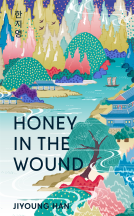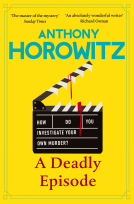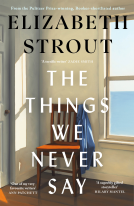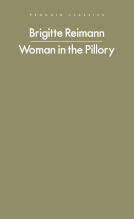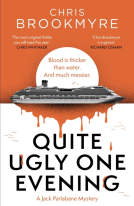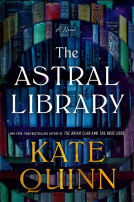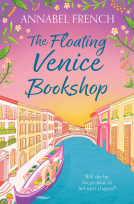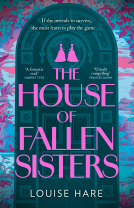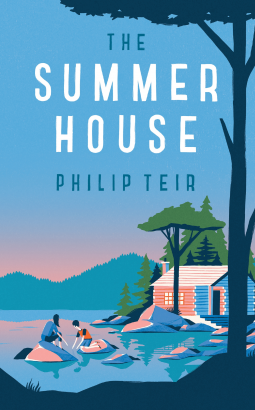
The Summer House
by Philip Teir
This title was previously available on NetGalley and is now archived.
Send NetGalley books directly to your Kindle or Kindle app
1
To read on a Kindle or Kindle app, please add kindle@netgalley.com as an approved email address to receive files in your Amazon account. Click here for step-by-step instructions.
2
Also find your Kindle email address within your Amazon account, and enter it here.
Pub Date 12 Jul 2018 | Archive Date 12 Jul 2018
Serpent's Tail / Profile Books | Serpent's Tail
Talking about this book? Use #TheSummerHouse #NetGalley. More hashtag tips!
Description
The light greenery of the early summer is trembling around Erik and Julia as they shove their children into the car and start the drive towards the house by the sea on the west coast of Finland where they will spend the summer. From the outside they are a happy young family looking forward to a long holiday together.
But look under the surface, and their happiness shows signs of not lasting the summer. On the eve of the holiday, Erik lost his job, but hasn't yet told the family. And the arrival of Julia's childhood friend Marika - along with her charismatic husband Chris, the leader of a group of environmental activists that have given up hope for planet Earth and are returning to a primitive lifestyle - deepens the hairline cracks that had so far remained invisible.
Around these people, over the course of one summer, Philip Teir weaves a finely-tuned story about life choices and lies, about childhood and adulthood. How do we live if we know that the world is about to end?
Available Editions
| EDITION | Hardcover |
| ISBN | 9781781259276 |
| PRICE | £12.99 (GBP) |
| PAGES | 240 |
Average rating from 5 members
Featured Reviews
 Alan M, Bookseller
Alan M, Bookseller
After Scandi Noir, is the next big thing Scandi Angst? Philip Teir’s first novel, ‘The Winter War’, drew much praise and comparisons to the likes of Jonathan Franzen and Julian Barnes. Now with this, his second novel, Teir continues his exploration of family, relationships and wider society.
Julia and Erik, with their two children in tow, head out of Helsinki for a long summer staying in Julia’s parents’ long-disused summer house. Unbeknownst to his family, Erik has just been made redundant from his job in IT with a large department store, and as the novel develops the summer house and its locations becomes an arena for Teir to explore ‘where we are now’ in a series of events and visits that become almost set-piece explorations of human relationships and wider social concerns. There is Erik’s brother, home from travelling in Vietnam, aimless and going nowhere with his life; there is the mysterious neighbour Kati, recently widowed and dealing with grief; and there is the ‘neo-hippie’ commune next door, where Julia meets her childhood-friend and discovers a family secret relating to her own parents.
Teir is very good at the detail, the minutiae of relationships and family life. Julia’s and Erik’s marriage is creaking, and by the end of the novel we are unsure where they stand. Although we see the events through many different perspectives it is perhaps through the experiences of the two children that we judge the others: Anton, the younger son, who wants to play video games and enjoy the summer but seems forced to face an adult world that confuses and bewilders; and Alice, just turning thirteen and experiencing boys and love for the first time. Ultimately, however, there is no ‘social norm’, each of the various relationships are failing or have failed (there are open relationships, past affairs, summer flings, and, of course, the ‘nuclear family unit’). The unspoken question is clear: how do we live together in a 21st century world as we slide ever closer to environmental, economic and social devastation?
Whilst I did enjoy the book – I firmly believe Teir is an author to watch for the future – some of the symbolism tended on the heavy-handed: as the family leave at the end of the book there is a ‘hint of autumn in the air’; as Julia learns of her mother’s affair and her husband losing his job it is in the middle of a thunderstorm with full-on lightning at appropriate moments; the summer house itself is rotting away with water seeping in through the basement….. It works, yes, but I feel there could be more nuance. However, I’m quibbling, because I did enjoy this book very much. More than his first novel? I’m not sure, but together the two of them announce a bold new voice in international fiction. And as for a Scandi Angst? Well, we’ll see…
 Book B, Reviewer
Book B, Reviewer
A nice little break at a summer house sounds nice doesn’t it? Depends on who you go with I suppose, but the family in this novel are the kind you’d want to escape. It’s dysfunctional but the relationships between the various members is what makes it so fascinating. The house acts like a magnifying glass putting emphasis on each and every one. They all come with their problems and, boy, do they have problems. Secrets and lies have also packed their cases. There’s enough baggage already in the summer house!
The setting is a cool calm place which contrasts beautifully with the trauma and chaos within. The various viewpoints add to the variety and randomness of it all.
Oh and didn’t I say before the outside world seems calm by comparison to the randomness within? The book becomes a study of how all people, in the house and those in the world at large, try and fail to live together, speak with each other and adapt to the changes around them.
The house is rotting too – falling to bits. The imagery is loud and clear.
It’s an interesting look at the world and the people within.
Readers who liked this book also liked:
Sophie Austin
General Fiction (Adult), Historical Fiction, Sci Fi & Fantasy
Louise Hare
Historical Fiction, Multicultural Interest, Mystery & Thrillers


